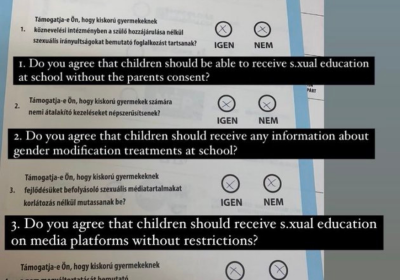Finland and Sweden applied in May last year to join the NATO military alliance. Vijay Prashad looks at why Sweden's membership is being blocked.
Hungary
Viktor Orbán’s conservative-nationalist Fidesz party won the April 3 Hungarian general elections, but failed to achieve the required votes on an anti-LGBTI referendum, reports Dick Nichols.
Luke Cooper reports on his visit to Hungary, a European Union member state where democratic freedoms are no longer taken for granted.
Hungarian foreign minister Peter Szijjarto accused United Nations officials on September 19 of “spreading lies” with their criticism of Budapest’s anti-migration policies.
The comments came just days after new UN High Commissioner for Human Rights, Michelle Bachelet, and UN rights experts harshly criticised Hungary’s immigration policies.
Szijjarto told the UN Human Rights Council in Geneva that “it was obvious” the UN officials were “biased pro-migration officials”.
Hungarian foreign minister Peter Szijjarto accused United Nations officials on September 19 of “spreading lies” with their criticism of Budapest’s anti-migration policies.
The comments came just days after new UN High Commissioner for Human Rights, Michelle Bachelet, and UN rights experts harshly criticised Hungary’s immigration policies.
Szijjarto told the UN Human Rights Council in Geneva that “it was obvious” the UN officials were “biased pro-migration officials”.
Over the past seven years of Hungary’s right-wing Viktor Orban regime, there were no strong protest waves — until now.
Every day, groups are popping up across Budapest demanding Orban resign. Every two-to-three days, masses gather to protest against new undemocratic laws proposed by the ruling Fidesz party in parliament.
The two biggest protests happened within just one week. The first major protest took place on April 9. It started as a protest against the so-called Lex CEU law that attacks academic freedom and ended with the masses marching on the Fidesz head office.
Austria, as well as Serbia and Croatia, have joined other European countries in temporarily closing their borders. On September 21, Croatia closed its last checkpoint for trucks on the Serbian border where thousands of refugees are waiting to cross in the hope of a better life.
Hungarian riot police used tear gas and water cannons against crowds of refugees and migrants on September 17. Clashes at the Horgos-Roszke border crossing with Serbia lasted for hours, after hundreds of refugees and migrants protested to demand entry to Hungary.
In less than a fortnight a series of tragedies took place on the borders of Europe, spurring a continent-wide debate over refugee policy.
“Are we animals? Why? Why?” Those were the words of one Syrian refugee to BBC's Channel 4 recently after Macedonian police attacked desperate families seeking entry into the country along the border with Greece.
- Page 1
- Next page











